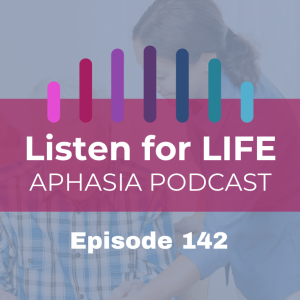
💭 “I feel like I’m talking to a wall. I see the struggle, but he doesn’t. How do you help someone who doesn’t even realize they need help?”
When a stroke survivor doesn’t recognize their own deficits—whether it’s missed objects, risky decisions, or emotional distance—it can feel like denial. But this isn’t stubbornness. It’s something deeper: a neurological change called anosognosia.
In this episode, we unpack the emotional and relational weight care partners carry when their loved one just can’t see what’s wrong.
🎧 What this episode covers:
- Why self-awareness is often disrupted after a right hemisphere stroke—and what that looks like in daily life
- The difference between denial and anosognosia (and why it matters for your sanity)
- How to use practical, gentle strategies to encourage awareness without confrontation
🛑 This is Part 4 of our 5-part Right Hemisphere Stroke Series:
🔹 Go back to Episode 138 to learn how stroke affects how survivors process information
🔹 Listen to Episode 140 for insights on emotions, relationships, and social cues
🔹 Check out Episode 141 to explore personality and behavior changes after stroke
🔹 Stay tuned for next week’s episode—we’re answering your top questions about right hemisphere stroke
Are You Lisa or Elena?
There’s a story I want you to read—it’s short, but powerful. It’s called Are You Lisa or Elena? And the truth is... most care partners are living one of these stories. I want you to find out which one is yours.
➡️ https://lifeaphasiaacademy.co/f/are-you-lisa-or-elena
🎧 Listen now to understand stroke awareness challenges & what you can do.
🔔 If this episode helped you, please share it with another care partner.
No comments yet. Be the first to say something!